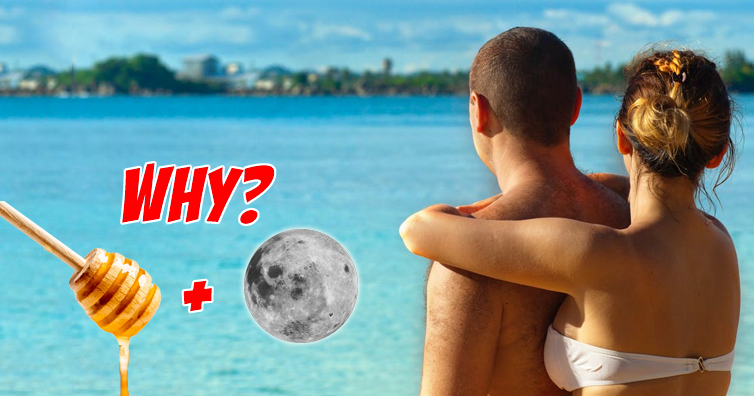Have you ever wondered why the traditional holiday of newlyweds is called ‘honeymoon’? I mean, where did the term first come from and what does it actually mean?
Well wonder no more because we have the answer and as it turns out, it didn’t always mean vacation.
Here’s how it goes. (the article continues after the ad)
The etymology of the word comes from “hony moone”. “Hony” (old English for honey) is used as a reference to the sweet period of time following a couple’s wedding, and “Moone” (from old English “mona” meaning moon) represents time as it takes a month for the moon to wane and wax anew.
THE FIRST USE
According to Oxford English Dictionary, the source of the contemporary use of honeymoon dates back to 1592 in “Greene’s Vision: Written at the instant of his death. Conteyning a penitent passion for the folly of his Pen”. In the narrative, the story reads:
“[..]”To be bréefe, they were marryed: well that daye was past with dauncing and Honney moone it was for a moneth after[..]” (they got married and spent one month with each other).
THE FIRST TIME “HONEY-MOON” WAS USED
Up until that time though, honeymoon just referred to a happy period of time following a couple’s wedding. It took almost 2 centuries for vacation to come into play and it did so at the end of the 18th century in a collection of German folk stories by Johann Karl August Musäus:
“The new-married couple spent their honey-moon in Augspurg, in mutual happiness and innocent enjoyments, like the first human pair in the garden of Eden”.
From there, it became a verb “honeymooning” and at the first half of the 19th century it was widely used in phrases such as “honeymoon suite” and “honeymoon couple”.
And that’s why we today use the term honeymoon for the holiday of newlyweds.
If you like what you read, then you will definitely love this one: This Is Why The Red Sea Is Called… Red Sea
Photos: Oleksandr Pidvalnyi / Pexels, Marco Verch / Flickr, NASA
Photoshop: I’m A Useless Info Junkie
Sources: The mysterious origin of the word ‘honeymoon’



